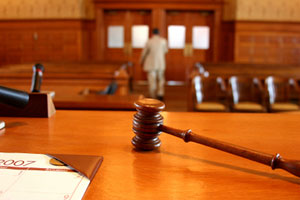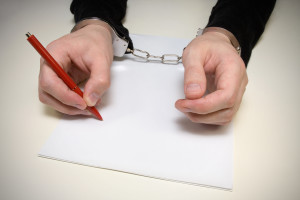A New York man charged in the kidnapping and murder of a Brooklyn real estate magnate has called on a psychology expert witness to testify that he falsely confessed to the crime. The high profile case provides another example of how behavioral science expert testimony is being worked into the legal system, and the outcome could influence the use of false confession research by courts in the future.
Brooklyn Murder Suspect Confesses to Role in Kidnapping
Brooklyn native Kendel Felix was arrested for his alleged involvement in the January 2nd, 2014 kidnapping and murder of real estate mogul Menachem Stark. Stark was taken from the front of his office during a snowstorm, and his partially burned body was later recovered in a dumpster on Long Island. Three months after the murder, police arrested Felix and three other co-defendants in connection with the crime, but only Kendel has been charged with murder. Felix has been singled out in part because of a taped confession he provided to police officers in which he admitted to taking part in the crime by driving and helping to buy gasoline used to burn Stark’s body.
Felix claimed that he did not plan the crime, but his confession has nonetheless become the center piece of the trial against him. If convicted, Kendel faces 50 years to life in prison, and his attorneys have attempted to attack the confession evidence with a pre-trial hearing featuring false confession expert testimony. Attorneys for Felix reached out to a psychology expert witness with experience in false confession research to testify that the defendant was vulnerable to police persuasion which may elicit admission to a crime he did not commit.
False Confession Expert Testifies in New York Murder Trial
According to expert testimony from Dr. Marc Janoson during a pre-trial hearing in front of Brooklyn Supreme Court Justice Neil Firetog, Kendel Felix may have falsely confessed to the kidnapping and murder. Dr. Janoson has a PhD in psychology, and is an experienced false confession expert witness with years of research on the subject. Dr. Janoson has been called to testify in several criminal trials, and told Judge Firetog that Felix has “vulnerabilities that the literature has associated with false confessions.”
Dr. Janoson conducted several one on one interviews with Felix after the defendant’s arrest, and testified that in his expert opinion Kendel suffered from a low IQ of 87 and memory loss which made him more likely to falsely confess. Dr. Janoson also talked about the police investigation, during which officers told Felix that his parents could be deported if he didn’t confess and that he would never see his three children again. The police also dissuaded the defendant from talking to a lawyer. When talking about the methods the police used while questioning Felix, Dr. Janoson told the court “I would also add that if the reports he gave me on his interrogation were correct, there was a great deal of coercion.”
Dr. Janoson cited research on false confessions which demonstrates that low intellect individuals subject to heightened police pressure are at an increased risk to admit to a crime that they did not commit. During his expert testimony, Janoson explained the existing research on false confessions and highlighted the attributes of Felix’s case which align with false confession literature. Prosecutors responded by calling a counter-expert to dispute Janoson’s claims.
Prosecution Calls Psychology Expert Witness to Dispute False Confession Testimony
In response to Dr. Janoson’s false confession expert testimony, prosecutors called psychologist Kathy Yates to dispute the defense’s claim that Felix was vulnerable to police coercion. According to Yates, the defendant had the intellectual capacity to understand his rights to speak with a lawyer, and faked his memory loss in an effort to avoid a long prison conviction. During her testimony, Yates looked to Felix and directly contradicted Janoson’s testimony by saying, “I apologize for my colleague yesterday for saying you were brain damaged and below intellect.”
The success of Felix’s false confession expert witness remains to be determined, but the case represents an interesting use of experts in criminal trials. False confession expert witnesses have grown in popularity as research into the phenomenon expands, but even renowned experts have experienced difficulty convincing judges and juries that a suspect can admit to a crime he did not commit. Despite the uphill battle false confession experts face, psychologists in the field may be called upon by defense attorneys who seek to challenge evidence which is historically a strength for prosecutors.







